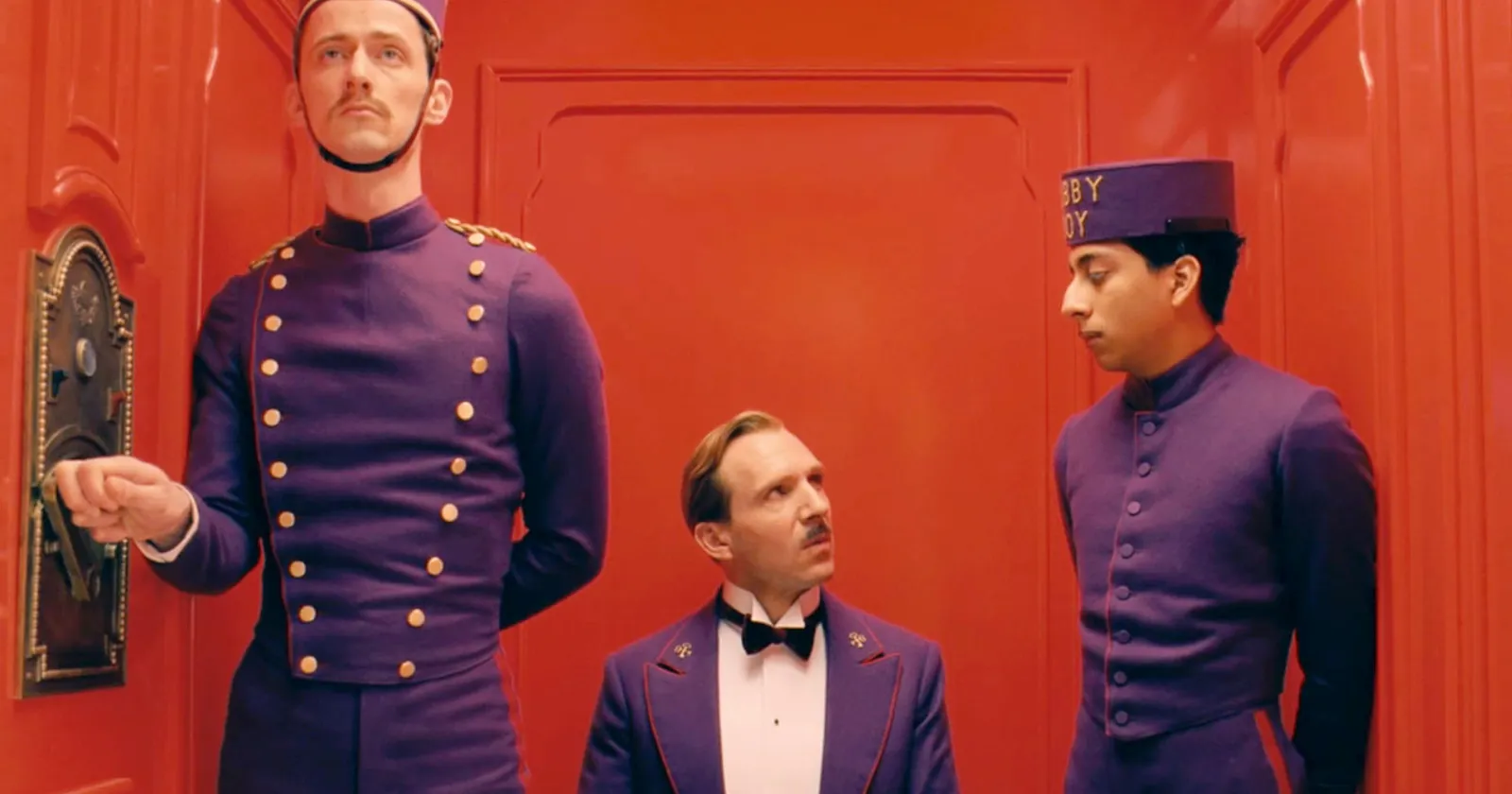Over time, The Grand Budapest Hotel (2014) has cemented itself as a cultural touchstone—both a love letter to lost grandeur and a meditation on companionship, legacy, and the erosion of civility. For some, it’s Wes Anderson’s magnum opus. For others, like myself, it’s just a step below his best work—visually breathtaking and endlessly interesting, but emotionally a bit more muted. Still, it’s a film that rewards revisiting and one that continues to reveal more layers the deeper you go.

‘The Grand Budapest Hotel’ Movie Review
The Grand Budapest Hotel stands as one of the most ambitious and widely celebrated films in Wes Anderson’s career—a visual symphony of symmetry, color, and control. It marked a turning point for Anderson, both critically and stylistically, encapsulating nearly two decades of his evolving artistry into one meticulously crafted package. While it’s easy to see why The Grand Budapest Hotel has been called the quintessential Wes Anderson movie, there’s something about its ornate façade and heavily curated design that, for some viewers, keeps it just out of emotional reach.
Set in the fictional Eastern European nation of Zubrowka during the interwar period, the film follows Monsieur Gustave H. (Ralph Fiennes), a devoted and decadent concierge at the opulent Grand Budapest Hotel. When one of his elderly guests—Madame D. (Tilda Swinton)—dies under suspicious circumstances, Gustave is accused of her murder. With the help of his loyal new lobby boy Zero (Tony Revolori), Gustave embarks on a madcap adventure involving stolen art, prison escapes, fascist militia, and absurdly timed chases. The film, framed through multiple nested timelines and narrators (with appearances by Tom Wilkinson, Jude Law, and F. Murray Abraham), creates a storybook-like structure that blends comedy, tragedy, and political undertones.
Ralph Fiennes is nothing short of revelatory. In a filmography filled with iconic performances from actors like Bill Murray (The Life Aquatic with Steve Zissou), Gene Hackman (The Royal Tenenbaums), and Jason Schwartzman (Rushmore), Fiennes as Gustave H. ranks among the very best in Wes Anderson’s catalog. His performance is theatrical without being cartoonish, deeply funny without ever losing a sense of genuine dignity. The fact that he was overlooked by the 2015 Academy Awards for Best Actor—while The Grand Budapest Hotel secured nine nominations including Best Picture and Best Director—is one of the most puzzling omissions of the decade.
The supporting cast, a who’s who of Anderson regulars and new faces, includes Adrien Brody, Willem Dafoe, Edward Norton, Saoirse Ronan, Jeff Goldblum, and Harvey Keitel, all playing with the kind of tonal precision the director demands. The production design (which won an Oscar), costuming, and Alexandre Desplat’s whimsical, melancholic score (also Oscar-winning) all feed into the tightly calibrated atmosphere that defines every frame.
What makes The Grand Budapest Hotel so singular is its command of tone. It operates at the intersection of comedy and mourning, a tribute to a world that no longer exists—both in terms of old-world Europe and the kinds of handcrafted cinema rarely seen in the 21st century. Yet, for all its beauty and craft, there’s a coldness beneath the ornate surface. The emotional throughline between Gustave and Zero, while central to the film’s arc, never quite hits with the poignancy found in The Royal Tenenbaums or even Moonrise Kingdom. There’s a cerebral distance that makes it feel like you’re admiring a masterpiece through a pane of glass—stunning, but never fully immersive.
Still, it’s hard to ignore how influential and important The Grand Budapest Hotel has become—not just in Wes Anderson’s filmography, but in the larger conversation around auteur cinema in the 2010s. It refined the techniques Anderson had been building toward in Fantastic Mr. Fox and Moonrise Kingdom and set the tone for his later works like The French Dispatch, Asteroid City, and The Phoenician Scheme. You can see the lessons of stop-motion animation in the film’s intricate blocking, the snap-precise editing, and the diorama-like set design.
READ MORE MOVIE REVIEWS: Faults, Guardians of the Galaxy, Whiplash
Over time, the movie has cemented itself as a cultural touchstone—both a love letter to lost grandeur and a meditation on companionship, legacy, and the erosion of civility. For some, it’s Wes Anderson’s magnum opus. For others, like myself, it’s just a step below his best work—visually breathtaking and endlessly interesting, but emotionally a bit more muted. Still, it’s a film that rewards revisiting and one that continues to reveal more layers the deeper you go. The Grand Budapest Hotel may not be perfect, but it’s as close to a cinematic confection as modern film has delivered.
Score: 8/10
The Grand Budapest Hotel (2014)
- Cast: Ralph Fiennes, F. Murray Abraham, Mathieu Amalric, Adrien Brody, Willem Dafoe, Jeff Goldblum, Harvey Keitel, Jude Law, Bill Murray, Edward Norton, Saoirse Ronan, Jason Schwartzman, Léa Seydoux, Tilda Swinton, Tom Wilkinson, Owen Wilson, Tony Revolori
- Director: Wes Anderson
- Genre: Adventure, Comedy, Drama
- Runtime: 100 minutes
- Rated: R
- Release Date: March 7, 2014
- Movies Like The Grand Budapest Hotel: Barbie, The Favourite, Everything Everywhere All at Once, More Movies Like The Grand Budapest Hotel
Read More Reviews for Wes Anderson Movies
Cinephile Corner has reviewed the following Wes Anderson movies: